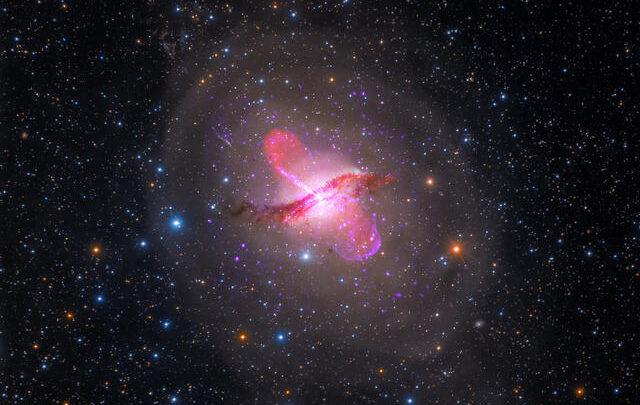U of A professor discusses the question of extraterrestrial life
Robert Smith delves into the history and complexities surrounding the debate on the existence of alien life.
 NASA
NASAFascination with aliens is nothing new, but what makes the possibility of extraterrestrial life so intriguing to so many? Robert Smith, a professor in the department of history, classics, and religion at the University of Alberta, offers insight into this long-held question.
According to Smith, interest in aliens falls into three main categories: spiritual, philosophical, and scientific. The biggest question, he explained, is whether or not aliens exist.
“People are interested in the overall question of the existence of extraterrestrial life.”
Smith said that the scientific fascination with aliens dates back to ancient times. “Epicurus, who had ideas about atoms, thought that there were what he called worlds and infinity worlds. He thought it would seem very odd to have an infinity of worlds, and our world being the only one with intelligent beings,” Smith said.
Alien life has long been a subject of debate among scientists. Smith referenced a discussion from the early 19th century, caused by the discovery of straight lines on Mars. Some argued that the lines were too precise to occur naturally. Thus, they believed Martians had built canals to transport water from the planet’s poles to its desert-like regions.
“A lot of people accepted the theory that those fine lines were, in fact, canals on the surface of Mars,” Smith said.
Smith thinks that scientific interest in extraterrestrial life remains strong. He predicted that future telescope projects will focus on examining the atmospheres of nearby planets for signs of life.
“How can we relate to these other forms of life if we have intelligent beings?” Smith asks
According to Smith, the idea of aliens also brings up philosophical questions about what it would mean for humanity if we were not alone in the universe.
“The philosophical dimension has to do with thinking about our place in the cosmos. How do we relate to nature? What’s the meaning of life?” he said.
“What’s at stake is either we’re alone, which is remarkable given the number of planets there are in space, or there’s other life. And if there’s other life, where is it? How can we relate to these other forms of life if we have intelligent beings, rather than just odd collections of organic molecules?”
Smith also explored the spiritual aspect of alien fascination. He imagined what it would have been like to study extraterrestrial life at the University of Paris in the 13th century.
“We’re talking about a Western Christian viewpoint because we’re at the University of Paris in this scenario. In it, you wonder, has Jesus revealed himself to beings on other worlds? Have they been saved? If not, are they eternally damned?”
Smith explained questions like these would have been dangerous to ask. This is due to the fact that it would have challenged the religious doctrine of the time.
As for conspiracy theories linking aliens to the construction of ancient buildings, Smith expressed skepticism. “I think it kind of downplays the capabilities of our ancestors,” he said.
As for Smith’s own views about alien life, he feels that due to the vastness of space there is an almost certainty of extraterrestrial life.
“I think there’s certainly some sort of life. Whether it’s intelligent life that we could maybe communicate with in some fashion, I think that’s something that by this point we just don’t have enough information to know,” Smith said.




